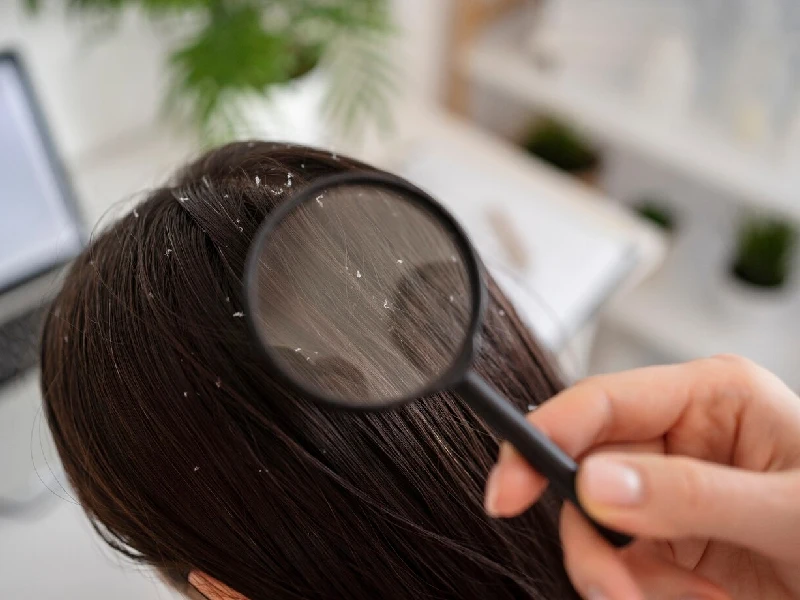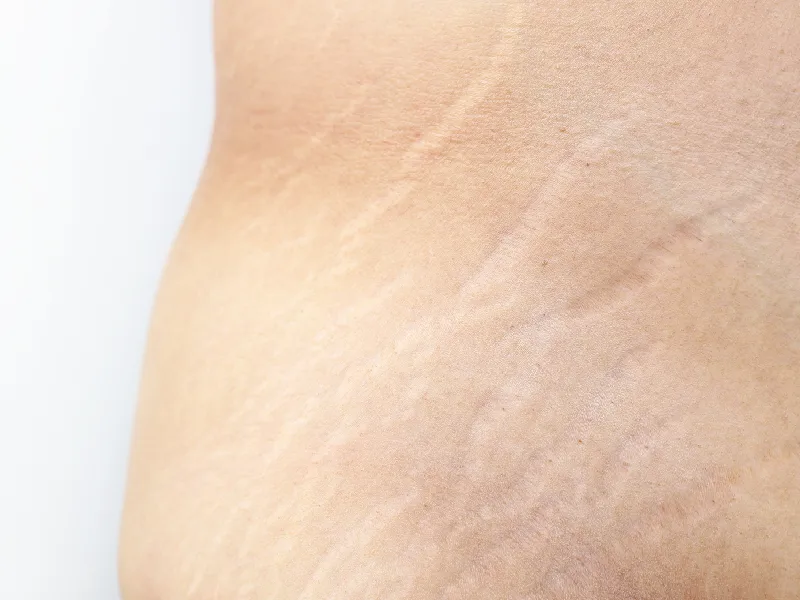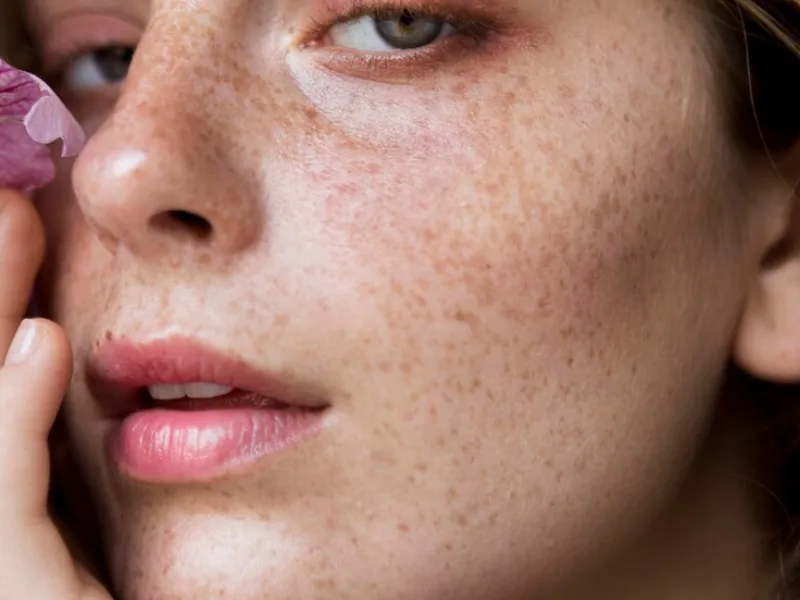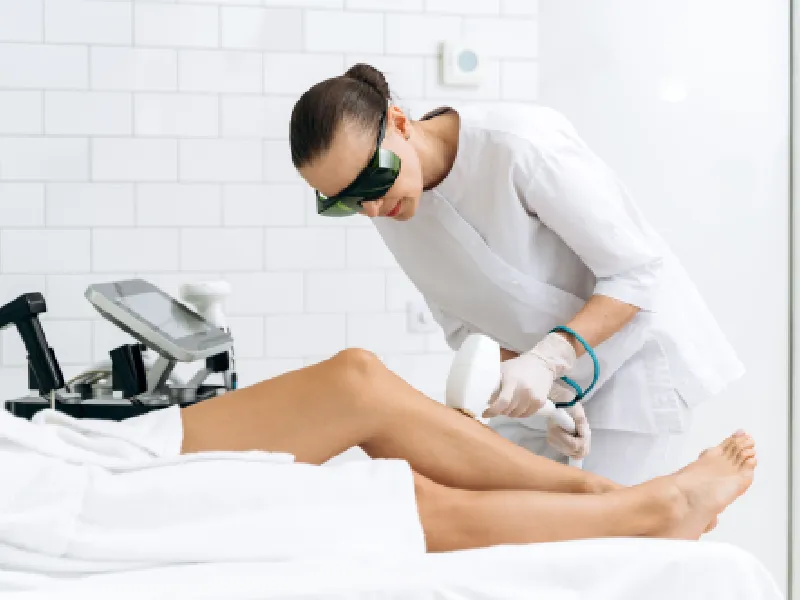- Date: May 17 2023
Melatonin is a hormone that is naturally produced by the body’s pineal gland in response to darkness. It plays a crucial role in regulating sleep-wake cycles, and its production is affected by factors such as age, light exposure, and certain medications. However, recently, researchers have also found that melatonin has a range of beneficial effects on the skin.
This hormone is produced by the brain in response to darkness. It has a vital role in helping us sleep and maintaining the circadian rhythm timings (the 24-hour cycle of the body clock). Changes in lifestyle and increasing age can lead to a reduction in melatonin production. This affects your sleep, causing insomnia and sleeplessness.
Human skin has melatonin receptors, and melatonin concentration is several times higher than that in plasma.
In the skin, melatonin, functions as a potent free radical scavenger making it a powerful anti-aging molecule. Melatonin synthesis decreases with age but, locally applied melatonin has been shown to improve the clinical signs of skin aging, promotes wound healing and is effective in atopic dermatitis, seborrheic dermatitis, and vitiligo.
Overview
Melatonin is available as an oral supplement and in certain creams. How does it work and how is it important for the human body?
 The Melatonin hormone regulates the sleep-wake cycle according to the changes in light (day and nighttime). Darkness stimulates the brain to produce melatonin, resulting in sleep, and light reduces its production, causing us to wake up in the morning. However, people with low levels of melatonin suffer from sleeping disorders. Lack of proper sleep at night affects their skin, hair, mood, and other bodily conditions.
The Melatonin hormone regulates the sleep-wake cycle according to the changes in light (day and nighttime). Darkness stimulates the brain to produce melatonin, resulting in sleep, and light reduces its production, causing us to wake up in the morning. However, people with low levels of melatonin suffer from sleeping disorders. Lack of proper sleep at night affects their skin, hair, mood, and other bodily conditions.
Melatonin is also an antioxidant and can help manage blood pressure, immune function, and cortisol levels in the body. It can reduce the symptoms of seasonal depression and give relief from acid reflux. People with lower melatonin levels can take oral supplements to increase their levels and regulate their sleep cycle.
Though the supplements are sold with a prescription in some countries, it is recommended to consult a doctor before taking them. Melatonin is also available as a skincare product. It is applied to the skin to prevent sunburns. It stimulates enzymes that produce antioxidants and helps the skin fight harmful radicals (toxins).
Melatonin and its Skin Benefits
- Melatonin as an antioxidan
Melatonin acts as an antioxidant, scavenging the free radicals, which are unstable molecules that can damage cells and contribute to aging and disease. It thus helps protect the skin from oxidative stress and prevent signs of aging, such as fine lines, wrinkles, and age spots.
- Melatonin reduces inflammation.
In addition to its antioxidant properties, melatonin has also been found to have anti-inflammatory effects. Chronic inflammation can contribute to a variety of skin conditions, including acne, psoriasis, and rosacea. By reducing inflammation, melatonin can help improve the appearance of these conditions.
- Melatonin role is skin pigmentation.
Melatonin has been shown to inhibit the production of melanin, the pigment responsible for skin color, and may therefore be useful in treating conditions such as hyperpigmentation and melasma.
- Wound healing
Melatonin has been found to stimulate the growth of new blood vessels and promote the production of collagen, a protein that helps to give skin its elasticity and strength. This can help to speed up the healing process and reduce scarring.
- UV protection
Melatonin has a protective effect against UV radiation. UV radiation from the sun can cause significant damage to the skin, including sunburn, premature aging, and an increased risk of skin cancer. This molecule has been shown to protect against UV-induced damage by neutralizing free radicals and reducing inflammation.
Benefits of Melatonin Oral Supplements
- Hair Loss
While melatonin is not a cure for hair loss, it can aid in promoting hair growth (if all other factors are conducive). Hair follicles synthesize melatonin, thus making this hormone one of the responsible elements to counter hair loss. Oral melatonin supplements can treat hair loss but only when combined with other necessary supplements required by the body.
- Skin Care
Melatonin goes great with anti-aging and skin repair/ restoring products like retinol, vitamin C, and hyaluronic acid (which hydrates the skin and increases its elasticity). Applying sunscreen with melatonin can protect the skin from harmful UV rays. The topical application of melatonin doesn’t cause any side effects and can be used during the day and night.
Side Effects of Melatonin Supplements
Research shows that consuming melatonin supplements will not affect the body’s ability to naturally produce the hormone. Furthermore, it is not an addictive substance and is safe for long-term consumption.
 However, melatonin supplements are not recommended for children and teens unless prescribed by a doctor based on their health condition. There is no research to show that extended use of oral melatonin supplements is good for children.
However, melatonin supplements are not recommended for children and teens unless prescribed by a doctor based on their health condition. There is no research to show that extended use of oral melatonin supplements is good for children.
A few side effects of oral melatonin supplements includes:
- Nausea
- Dizziness
- Headaches
- Sleepiness
- Hormonal imbalance
- Mild tremors
- Confusion and reduced alertness
- Disorientation and anxiety
- Abdominal cramps
- Irritability
Melatonin supplements also interact with certain medicines for blood pressure, blood thinning, etc. It should not be consumed when taking antidepressants as it increases the symptoms of depression.
Precautions to Use Melatonin Supplements
- Adults can take melatonin supplements daily for up to 2 years.
- Don’t drive or use machines for 4-5 hours after taking the supplements.
- Try to relax and sleep so that melatonin works to regulate your sleep cycle.
- Though there isn’t proper evidence, studies show that melatonin works similarly to birth control. Don’t consume oral supplements if you are trying to conceive or are already pregnant.
- There isn’t enough evidence to prove that melatonin supplements are safe for nursing women. It’s safer to avoid them when breastfeeding.
- Melatonin supplements increase the risk of seizures.
- The supplements can worsen bleeding in people with bleeding disorders.
- Melatonin supplements can interfere with medication taken by patients with transplants.
- Melatonin gels are safe to use when applied to the skin.
Topical melatonin can be applied without worry, though it is recommended to consult a dermatologist if you have any medical conditions.
Book an appointment at Mehektagul Dermaclinic and get to know more about skin care by a senior dermatologist.

K-105, Basement, Hauz Khas Enclave, New Delhi -110016



















